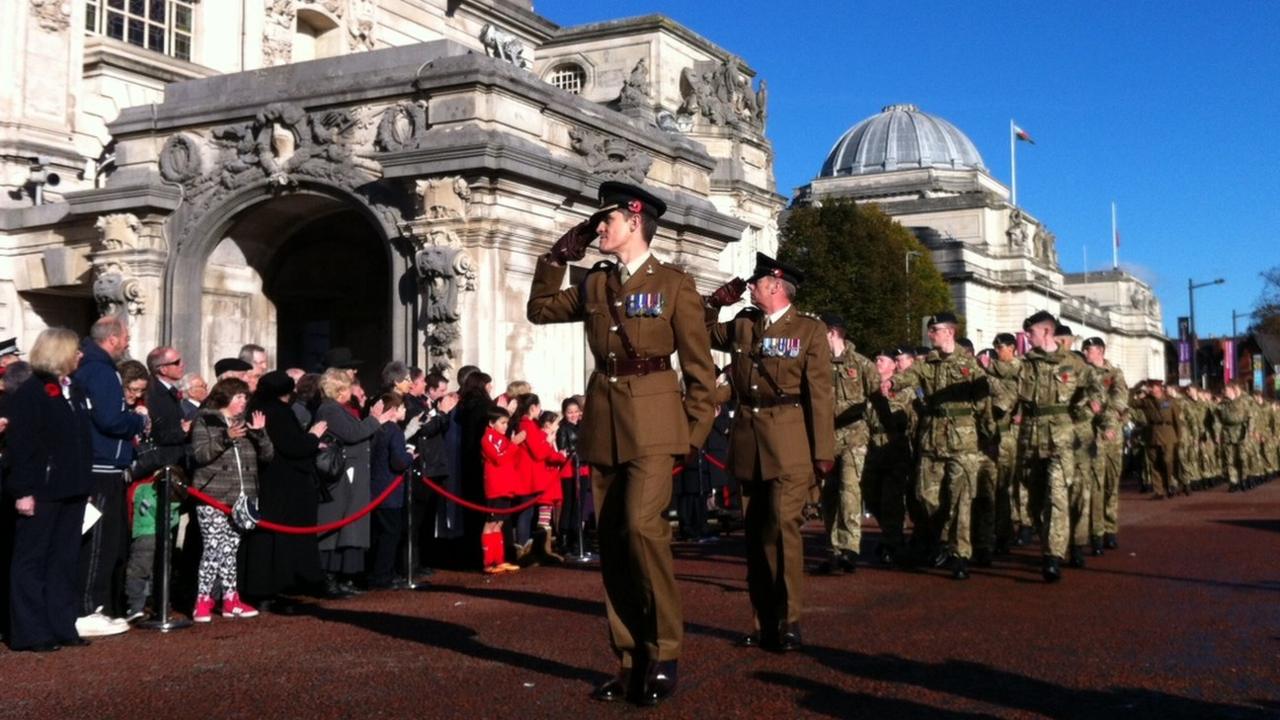Remembrance services around Wales mark WW1 centenary
- Published
Remembrance events took place across Wales
Services of remembrance have been held across Wales to honour members of the armed forces from the past 100 years.
The national service took place at the Welsh National War Memorial in Cardiff with others at Bangor, Wrexham, Welshpool, Swansea and elsewhere.
A Welsh national field of remembrance with 10,000 wooden crosses has also been opened at Cardiff Castle.
An ex-soldier from Llandudno, who lost his sight in service, joined the parade to the Cenotaph in London.
Welsh Secretary Stephen Crabb and First Minister Carwyn Jones joined those laying wreaths at the Wales National War Memorial in Alexandra Gardens, Cathays Park.
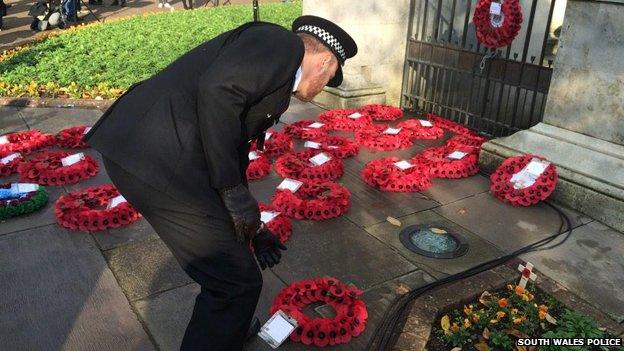
Deputy Chief Constable Matt Jukes lays a wreath on behalf of South Wales Police in Cardiff
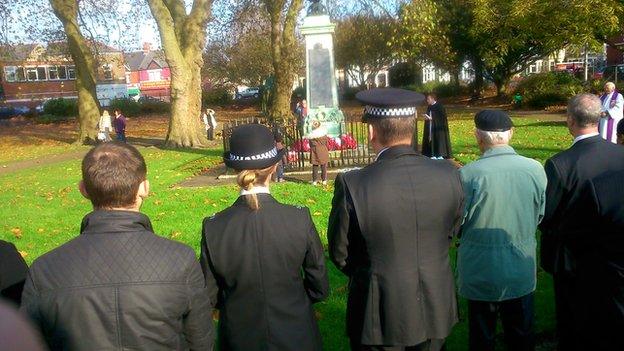
Veterans, police officers and other members of the community at the Grangetown war memorial in Cardiff
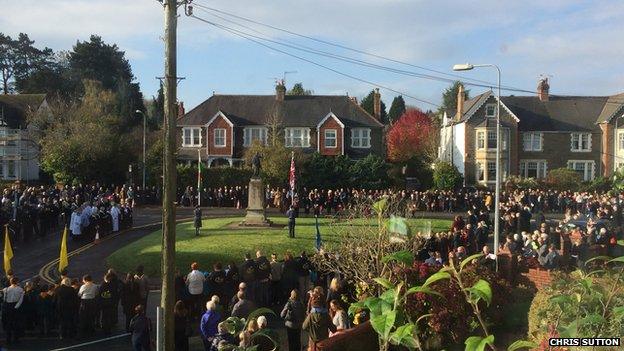
The people of Radyr, in Cardiff, pay their respects on Remembrance Sunday
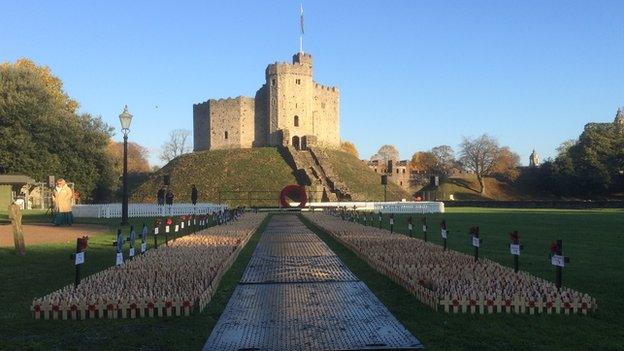
The field of remembrance in Cardiff is one of six in the UK
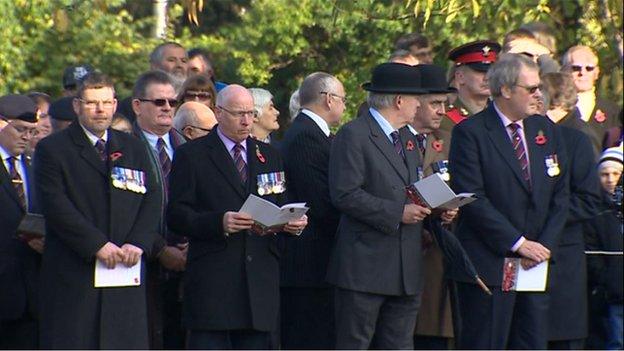
Veterans at the national service of remembrance in Cardiff
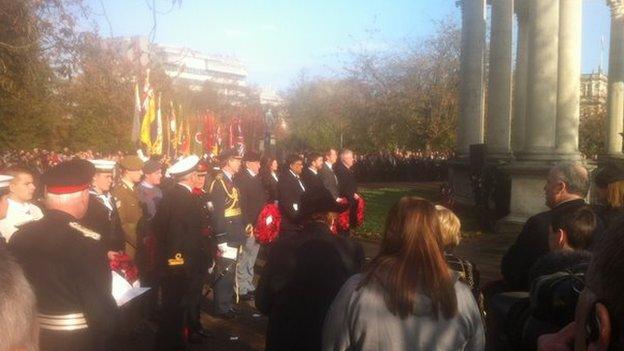
First Minister Carwyn Jones and Welsh Secretary Stephen Crabb attended the service in Cardiff
Detachments from the Royal Navy, the Army, the Royal Air Force and the Merchant Navy were among those who attended.
Mr Crabb said: "This Remembrance Sunday we mark 100 years since the beginning of the First World War.
"Forty thousand Welsh lives were lost from 1914-1918 and we must never forget the huge sacrifice that these men and women made to protect our freedom.
"The tributes that are taking place across Wales today demonstrate our enormous gratitude for the sacrifices that they and those in subsequent conflicts made."
In Swansea, the city's service of remembrance included a parade and a service at St Mary's Church.
Swansea Museum is to exhibit a poppy picked in the trenches of the Somme in 1916.
It has been loaned by the granddaughter of the late William George Bell, born in 1894, who fought in the Battle of Passchendaele and survived the war.
Lord Mayor councillor Ceinwen Thomas said: "This year poppies have already been blooming in remembrance across Swansea to mark 100 years since the Great War began."
In Welshpool, Powys, the Royal British Legion and Welshpool Town Council organised a parade and church service.
An annual service in Wrexham was held at the RWF Memorial, Bodhyfryd, on Sunday morning in the shadow of Wrexham Police Station.
In Gwynedd, Bangor Cathedral hosted a civic service with an act of remembrance at the cenotaph.
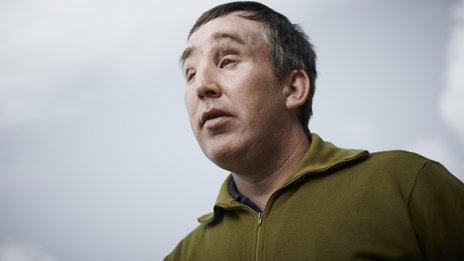
Carl Adamson was injured during active service in Northern Ireland
Former soldier Carl Adamson, 41, from Llandudno, joined thousands of ex-servicemen and women marching to London's Cenotaph.
He was serving in the Cheshire Regiment in Northern Ireland when the armoured vehicle he and his team were travelling in overturned on the last week of his tour.
He was thrown from the vehicle which pinned him down and crushed his head.
Mr Adamson, who needed 14 operations to reconstruct his face, is taking part in the commemorations representing Blind Veterans UK, a charity for vision impaired ex-servicemen and women.
"It's been a difficult journey so far and it's not over yet but without Blind Veterans UK, I wouldn't be where I am now," he said.
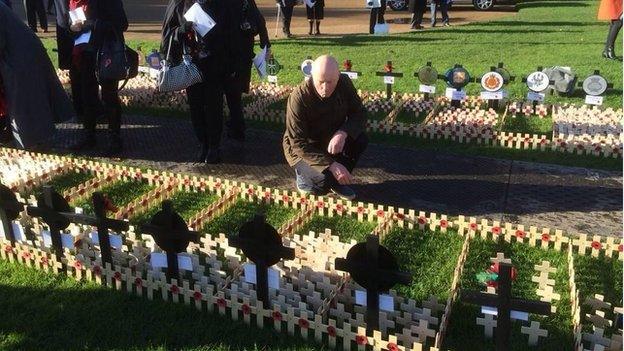
A Welsh national field of remembrance has been opened at Cardiff Castle
- Published9 November 2014
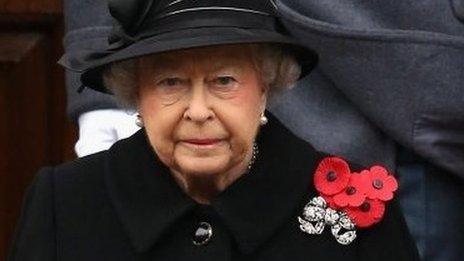
- Published5 November 2014

- Published8 November 2014
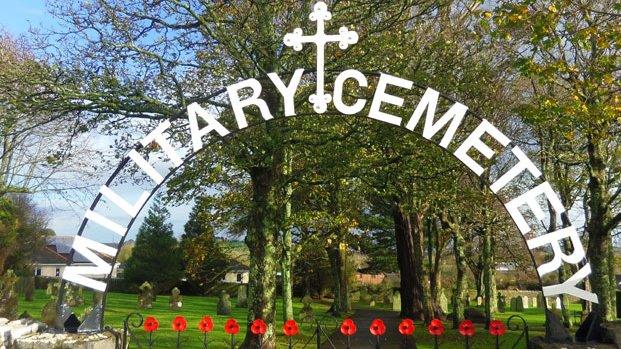
- Published10 November 2013
